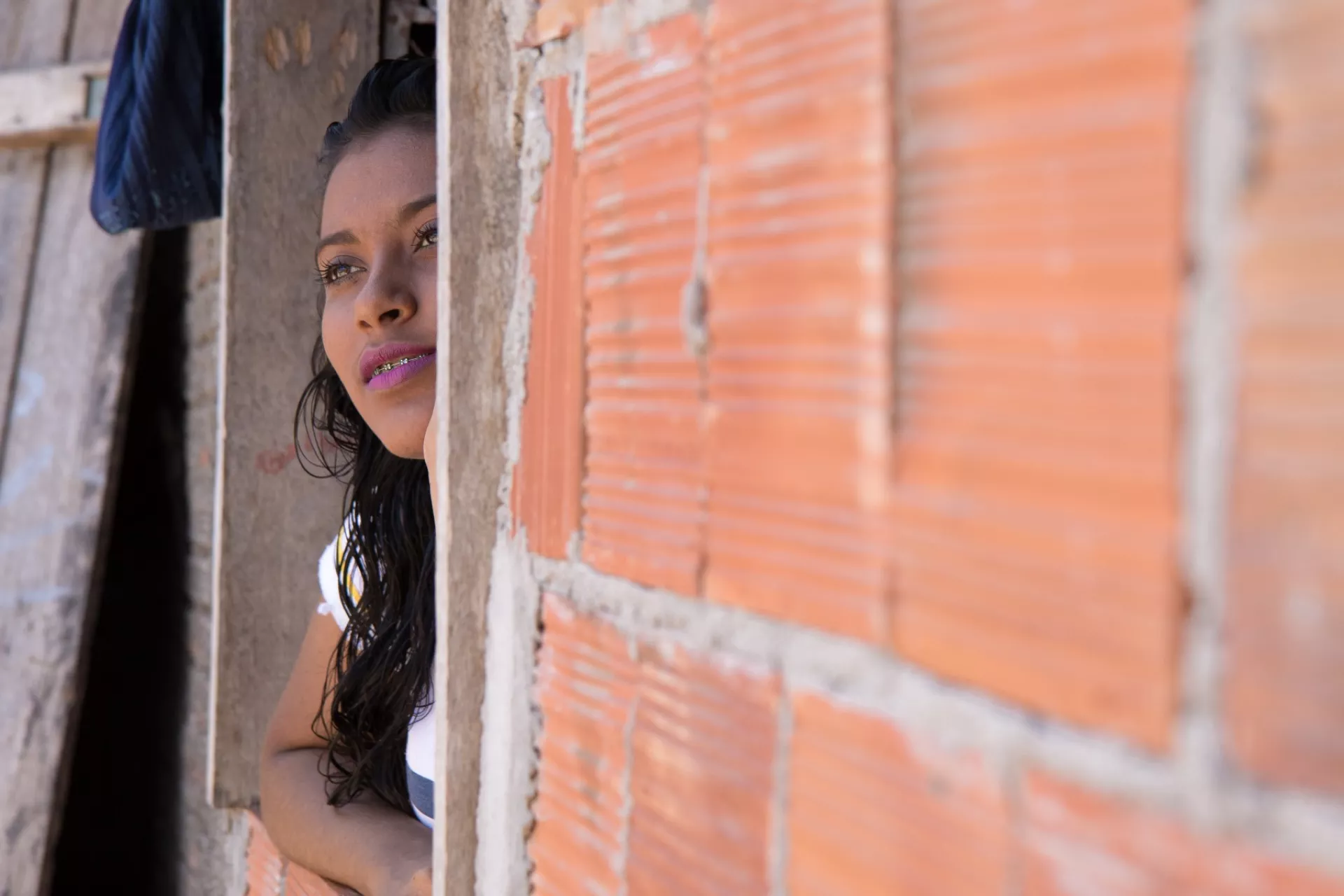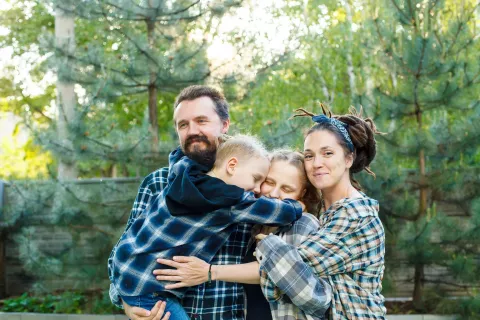Meet the teenagers in Brazil’s urban centres who are taking charge of their future
Four teens talk about making positive changes in their lives with some help from The Platform for Urban Centres

- Available in:
- English
- Español
SÃO PAULO, Brazil, 22 March 2017 – In Brazil, more than 84 per cent of the population lives in urban areas. In many of these areas, children and adolescents are yet to be guaranteed their rights to quality education, health and to a welcoming and protective environment. These shortcomings impede their full development, restrict their access to opportunities and contribute to violence and the cycle of poverty.
The Platform for Urban Centres (PCU) is a joint initiative undertaken by UNICEF Brazil and its partners that aims to reduce inequalities and guarantee the rights of children and adolescents living in the most vulnerable regions of major cities.
Bia, Joadson, Marvin and Moisés are just a few of the children who are benefiting from the programme. Read their stories below.

Bia
Underneath Maria Beatriz (Bia) Teixeira dos Santos’s feet, buried in sand, lies all the garbage that the city of Fortaleza has produced for years. The pile was once the old Jangurussu dump, built in the 1970s, and deactivated in the late 1990s. Her mother and grandmother both used to be scavengers, regularly going to the dump to search for food because they had nothing to eat.
Although she is surrounded by garbage, Bia maintains a certain distance from it. Her mother always believed in the power of education to end the cycle of poverty. She emphasized studying, going to classes, having goals and dreams.
"I was raised in the middle of social movements,” says Bia. “Whenever there is a demonstration I will go. My mother always invites me to participate... I really like this, debating about all the things that are wrong."
“I will leave to my children and grandchildren what my mother has left me: never to be silent, to always inquire and to debate with good arguments. I want to do what is right and teach them that.”
And seeing her daughter's predisposition to social causes, Bia's mother suggested that she participate in PCU. Over time she got to know people, and started talking about what was good and bad in the neighbourhood, and suggesting changes.
“PCU helped me to find arguments to debate. It also helped me learn how to better communicate (I was shy and very quiet). It also taught me to get along with other people, other genders, other religions and other realities. Because of the PCU, I gained a greater perspective on life.”
Now Bia is setting her goals for the next years: "I want to be a psychologist, to have my own house, and to take care of myself.”
But she still dreams of a fairer world for all, and her future will not be without political engagement: "I will leave to my children and grandchildren what my mother has left me: never to be silent, to always inquire and to debate with good arguments. I want to do what is right and teach them that.”

Joadson
Joadson Cirino Gomes has lived all of his 16 years in Sítio do Andraújo, commonly known as a grota. Grotas are similar to Rio de Janeiro’s favelas, but instead of being situated at the top of a hill, this community winds along a slope – a maze of clay houses connected by dirt roads and surrounded by trees.
His father left just a few months before he was born. Eventually, his mother could no longer support Jaodson and his six older siblings on her own. They starved, leaving Joadson no option but to beg for money and sell coconuts on the beach.
“We also used to collect cans to recycle. Whenever there was a can in the floor, my mother would say, 'Look at the gold! Look at the gold!’ To this day I can’t see a can lying on the floor without picking it up,” he says. “I don’t want to go back to that old life. But I'm not ashamed [of it].”
“I don’t want to go back to that old life. But I'm not ashamed [of it].”
Although he has always lived in poor conditions, it was not until last year that Joadson began to think about his community, to understand his rights and to learn how to improve his life. This awakening came when the he took part in PCU. By encouraging him to break out of his shell, the activities at PCU helped Joadson gain a new self-confidence.
Now he has big dreams of opening his own beauty parlour, a profession he fell in love with three years ago after assisting a neighbour with her hair. He has already set up a small shop on his porch, and his new proactive spirit has brought in more clients.
“It’s a great joy to do hair. I work with passion. Sometimes people come here sad and leave happy. I want to see my clients smiling because of my work.”
With everything he has lived and learned lately, Joadson says he is stronger – a feeling that he attributes to PCU. “I learned that young people need opportunities. And now I can offer this to others, call on them to seize their opportunities,” he says.

Marvin
When he’s not at school, Marvin Oliveira da Silva is home, where he spends most of the day listening to music and surfing social networks. His father does not like him to stay out in the street for fear of bad influences. "I only go out to play soccer,” he says.
Marvin lost many of his childhood friends to drug trafficking. “We used to play here on the street. It’s very sad, to see the guys I used to play with corrupted, knowing that at any moment they can die or kill for no reason.”
Marvin, too, used to be headed down the wrong path. He was disobedient at school and had low grades.
"Teachers complained... They said I was about to be expelled from school,” he says. “Then I realized I was 13 years old… I didn’t want to be like that! I didn’t want to see my father crying at school, my stepmother... So I decided to be a better person. I knew I could be a better person.”
“Then I realized I was 13 years old… I didn’t want to be like that!... I knew I could be a better person.”
In early 2016, Marvin was invited by his friend to participate in a lecture at PCU. Soon he began to attend on a weekly basis, joining a group of teenagers to talk about their neighbourhood. It was then that they began to comprehend the negative influence of the problems that surround them – prostitution, crime and drug trafficking – all things that happen right in the street where their school is.
Marvin began to share what he learned with his friends in school: “We would gather our classmates and talk about [the risks of] drug trafficking and teenage pregnancy.”
Now Marvin says he wants to be an example for other children. He remembers with joy the time his stepmother went to his school and heard compliments from the teacher for his grades and behaviour. “My father was happy. My Family was happy. That made me a better person.”
Up on his grandfather’s roof, the teenager looks down at the children playing in the street. He wishes he could join them, not only to play, but to advise them: "I would say, ‘Be aware of your friendships. And if you want to be someone in life, study.’"

Moisés
When Moisés Maciel da Silva turned 18, his life changed forever – he tested positive for HIV. The news dealt him a heavy blow, but after time and support from his loving mother, he began to rebuild. “Heads up,” she would say constantly.
Four months later, Moisés applied to an internship at Young SUS, a project run by the city government that aims to assist population in the public health care system. “That was when I realized that living with HIV was possible. Because I was there. Alive!” he says.
As an apprentice in Young SUS, Moisés got involved with Young Live Better Knowing, a joint initiative undertaken by UNICEF, the city of São Paulo and the NGO Viração, focusing on providing free tests for HIV as a preventive measure.
“That was when I realized that living with HIV was possible. Because I was there. Alive!”
Every Friday and Saturday night, Moisés heads downtown to a popular LGBT site where he and his colleagues are ready to perform HIV tests and provide care and assistance to whomever seeks information about STDs and HIV.
This exchange of expertise with other youths and everything he has learned through this process has given Moisés strength. “Besides knowing it’s possible to live with HIV, now I feel I’m in control. I feel I’m in charge of my life.”
Today, when he is not studying to take the admission test to the University, Moisés is “clearing his head”, learning Italian and French or dreaming of living abroad and continuing to help people. “This desire I have to help people is something that moves me… I want to help people through health care,” he says. Moisés also dreams of financially supporting his family and improving their income.
For now, he says, “I’m under construction. Every day I paint a bit of that Moisés portrait. For now, all I can say is that Moisés is Moisés. I am a person beyond any label. Above all, I’m a person.”
>> Learn more about the Platform for Urban Centres programme



